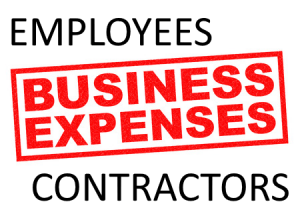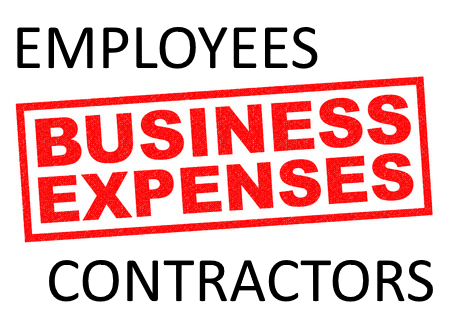 An employee racked up over $100,000 of debt on a credit card. After leaving the company, he sued his former employer contending that the debt was incurred as business expenses and should be reimbursed. However, his former employer disagrees.
An employee racked up over $100,000 of debt on a credit card. After leaving the company, he sued his former employer contending that the debt was incurred as business expenses and should be reimbursed. However, his former employer disagrees.
This dispute raises key questions about your company’s policy for business expenses.
Employee Business Expenses
Have you defined in writing what are business expenses? If so, is the policy in writing and the same for all employees?
Are your employees required to get permission before incurring such expenses? If so, what’s the procedure for doing so? Is it in writing? Who has the power to authorize or deny requests?
How are reimbursements of authorized employee business expenses handled? Is there are uniform reimbursement request procedure? Is there a deadline for submitting a request (e.g. 60 days after the expense was incurred)? What must an employee provide in order to be reimbursed for an authorized expenditure (e.g. receipts, credit card statements, etc.)?
If your business expense policy varies based upon one’s position within your business, are there written employment agreements that specify the specific rights and responsibilities of employer and each employee?
If you are not using employment agreements, do you have multiple written business expense policies that apply to each level within your company (e.g. C-level executives, middle management, entry level, etc.)?
Independent Contractors and Business Expenses
In addition to your employees, your written agreements with independent contractors should also address what constitutes a business expense and the procedures, if any, for reimbursing your contractors for incurring such expenses.
Many company owners mistakenly assume that a contractor’s bid to do a project covers all expenses related to that project.
However, disputes arise when there are payments to be made for some supplies needed to complete the project.
For example, if a third party is implementing CRM software for your business, does the bid for the project include the cost of licensing the software? If not, is the contractor purchasing a license for your business with the expectation of being reimbursed or are you expected to pay for the license directly?
The Key to Preventing Business Expense Lawsuits
Whether its employees or independent contractors incurring business expenses, the most important step to reduce your potential legal liability in a dispute is to have your expense policies and procedures in writing. Your business lawyer can prepare the appropriate legal agreements and policies based on industry standards and the unique needs of your company.

